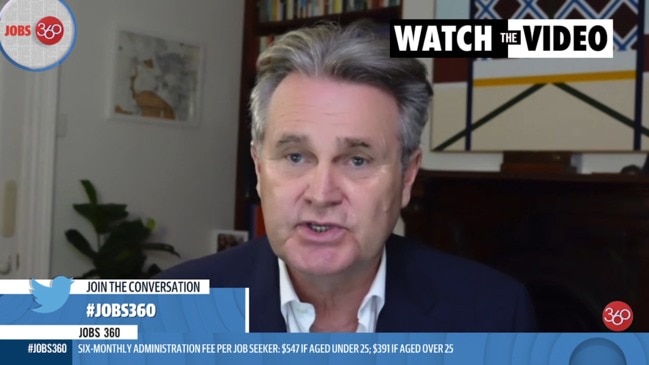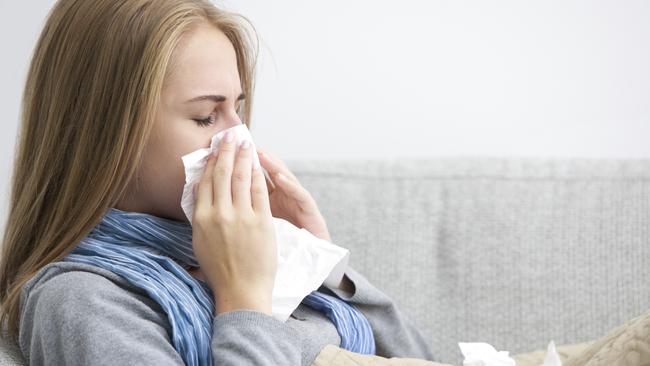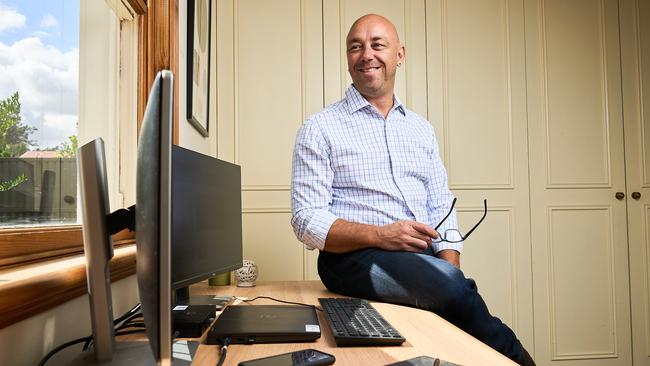Take your sick leave entitlement for a day off at home when sick
Sick employees are urged to drop any notion of “soldiering on” this cold and flu season, even if working from home.

SmartDaily
Don't miss out on the headlines from SmartDaily. Followed categories will be added to My News.
Sick employees are urged to drop any notion of “soldiering on” through their work day this cold and flu season – even by working from home – and take the sick leave to which they are entitled.
Employers also are being told to embrace “the sickie”, as it can help cure fatigue, leading to more productive workforces.
Pre-COVID, many workers with a sniffle or throat tickle, or worse, would turn up to the workplace – but as many of the virus’ symptoms mimic other illnesses, health authorities urge anyone with them to get tested and stay home.
When the result is negative and the cold or flu persists, workers may feel pressured, by themselves as well as their bosses, to continue working.
WHAT EMPLOYEES SHOULD DO
A LinkedIn poll of 16,000 people in March found 39 per cent of those who work from home would only take sick leave if they felt really ill, and 24 per cent of respondents would work through illness.
Leadership consultant Mark LeBusque, director of The Human Manager, says workers are not at their best when they are sick, whether at home or in the office.
“People (used to) come into work and still soldier on because it was a bit of a badge of honour to do that,” he says.
“Employees can feel a level of conscious or unconscious pressure to front up and be the martyr because they need to get a lot done.
“But when people say they are sick, they are sick.”

Gartner research and advisory vice president Aaron McEwan says workers may feel physically healthy enough to do the work from home anyway but they should still consider leaving their laptop turned off.
“We’re seeing such an incredible rise in fatigue in the workplace, particularly off the back of 2019 bushfires and pandemic of 2020, people are working harder and longer in terms of hours – the bigger risk is burnout and mental health problems,” he says.
“What I would hope to see is employees taking mental health breaks.
“Employees should take time out to recover and to take a break, both mentally and physically, from work.”
LeBusque urges those anxious about catching any virus if they head into the office, particularly if they catch public transport, or who would prefer to stay warm at home in their pyjamas, to not lie about being sick to avoid going in.
“If there are people who are more susceptible (to illness) because they have a pre-existing condition or are older employees, if employers know about their people, they’ll know those that are true,” he says.
Aviation company Cobham programs director Steve Pirie works from home one day a week and historically has soldiered on through illness.
But he says now he will take a different approach, regardless of his work location.

“During COVID, it’s something that we’ve all come to terms with – if you’re sick, you’re sick. Everybody gets sick,” he says.
“I think these days I would take the day off to rest and recover.
“I know if I’m sick, I’m not going to be on my best game, and if I’m not, it’s okay to take the day off.”
WHAT MANAGERS SHOULD DO
LeBusque says staff may say because they are staying home, they will be able to continue working, but managers should be firm and advise they should not work when sick.
“What used to happen was people would come in sick and the manager might say, ‘You’re crook, go home.’,” he says.
“Managers and organisations are starting to take heed of the fact that when people are sick, they don’t expect them to do the work at home.
“I think there will be people taking (advantage) a bit – (but) what’s the fine line between being seen as a caring employer, and someone who’s seen as being a bit of a tyrant and cracking down on staff?”
Managers should ensure the workplace sick leave policy is communicated to staff, such as if an employee takes two days off in a row, they need to produce a medical certificate.
McEwan says employers need to start normalising the idea that workers take the day off when they are sick.
“The perception around the sickie is people are rushing off to spend the day at the beach, but the reality is that people need to take a break and have busy and complicated lives, that are increasingly difficult to manage because work is increasingly encroaching into lives,” he says.
He believes “chucking a sickie” also should be rebranded, and embraced by employers.
“You have a negative connotation with the sickie – what if we rebrand the sickie to be a mental health day and actually encourage employees to take them?”
Cobham chief human resources officer Angela Catlett says it has visible reminders on desktop backgrounds and on TV screens for staff to stay home if they do not feel well.
“As always with sick leave, we trust our employees to do the right thing and use it appropriately when they are not fit for work,” she says.
“Whether working from home or from the office, we encourage our employees to make good decisions for themselves when it comes to health, and rest properly if they are unwell.
“We have witnessed a culture shift post COVID, where employees who are visibly sick are praised for remaining at home, rather than for toughing it out at work.”
ADVICE FOR CASUALS AND THEIR EMPLOYERS
Casual employees do not have paid personal/carer’s leave entitlements so may feel financial pressure to work when unwell.
LeBusque says they may have to accept it as “a bit of bad luck, and that’s the role you’re in” that they take time off without pay but some organisations may want to show flexibility.
“Some organisations that want to keep their casual talent might want to look after these people … have a bit of flexibility to pay something to these people for the time they miss,” he says.
“Some jobs have a lot of casual labour in them – if they all get crook, who does the work?”




